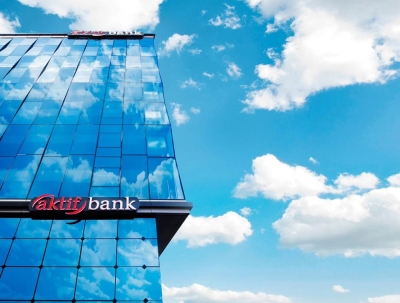Aktif Bank; the largest privately-owned investment bank in Turkey, has joined the growing number of Kigali International Financial Centre’s (KIFC) membership, a move that has also seen the firm set up a regional representative office in Kigali.
The bank is a subsidiary of the Çalık Holding, a Turkish conglomerate that has been operating in the energy, construction, mining, textile, finance and banking, as well as digital sectors.
With an asset base of around $3 billion, the bank serves about 10 million customers within more than 10 business lines including loans, insurance, transportation, card services, payment systems, entertainment among others.

Jean Luc Cyusa, Aktif Bank’s Chief Representative Officer in Kigali, said that the bank avails trade finance lines globally, and provides account management services in major currencies.
“The Representative Office was created to remain close to the growing network of Aktif Bank and to relationships in Africa, also catering to the continent’s needs in its trade globally,” Cyusa pointed out.
As it stands, he said, Aktif Bank has so far accumulated Relationship Management Application (RMA) connections with over 1,100 banks in 150 countries.
It was due to this growing global expansion, Cyusa asserted, that the bank decided to have a physical presence in Africa.
Our major products offerings in international banking are trade services and finance, account management and treasury services.
“As of today, around 400 African banks maintain correspondent relationship with us with 200 of them having accounts at our counters. Serving our clients from Istanbul is okay, but we decided to have a physical presence in the continent to be closer to our client network so that we can be of best service to them,” Cyusa added.
Big win for Rwanda’s financial sector
According to Cyusa, senior management of the bank entertained multiple locations to choose from before establishing the office. The decision to have the office in Rwanda was made based on the business-friendly environment in the country and the convenient location.
He highlighted that there are attractive incentives for investors ‘who come to Rwanda’, particularly, cementing the country’s ambition to become a financial hub through the Kigali International Financial Centre (KIFC).
“Positioning and network expansion of Aktif Bank in Africa over the several years paved the way to what we call the Intra Africa Payment Platform (IAPP), whereby African banks which have accounts with Aktif Bank, can transfer funds between one another.”
This, Cyusa argued, is very ‘key and instrumental’ for the exchange of goods and services, particularly looking at the advent of the African Continental Free Trade Area (AfCFTA).
In Rwanda, the bank has already managed to expand its client base, Cyusa said, that out of the 10 commercial banks in the country, Aktif Bank has already started operations with three.
“We are in advanced stages to onboard two additional banks and this is only Rwanda. We also have very good relationships with banks in the East African community and the West African region,” he said.
Today, the focus is mainly on trade finance, account management and treasury.
“I want to highlight the fact that us, coming here, was also thanks to the work that has been done by the Rwanda Finance Limited (RFL) team through the creation of KIFC. The work that they have done is really outstanding”
“In particular, Rwanda Finance Limited team helped us reach out to the relevant decision makers, regulators, other stakeholders in order to land a license. RFL were very instrumental in that, and also each time we approached them for advice or recommendations, they were always open and helpful.”
With KIFC attracting investors and members, including African fintech leaders, financial services providers, corporate services providers, impact investors and angel investors, Aktif Bank could benefit from the networks and leverage on partnerships of fellow members.
The network also has opportunities for connectivity, advocacy, and promotion.
Commenting on the move, Gwladys Watrin from the Rwanda Finance Limited Business Development team, said for the first time in Rwanda, “we are having a non-African financial institution such as Aktif Bank, making KIFC a place that is resolutely international in its diversity.”
She added, “Aktif Bank’s choice to open its Representative Office in Kigali to cover Africa confirms the attractiveness of our financial centre. We are also in discussion with other major international banking groups that we hope to see established in Rwanda in the coming months.”
Watrin shared similar sentiments with Cyusa who pointed out that the bank plans to use Rwanda as a launch pad to the rest of the continent.
“That is an opportunity for Rwanda business owners to think beyond our market. Rwanda has close to 13 million people but EAC is probably more than 200 million. This gives our entrepreneurs a chance to tap into that market,” Cyusa added.
Rwanda Finance Limited spearheads efforts in the development of the incentives for the Kigali International Financial Centre, an initiative that seeks to position Rwanda as a preferred financial jurisdiction for investments into Africa, as well as reform the domestic financial sector.
Just last year, the centre was ranked 5th in Africa on the Global Financial Centres Index (GFCI) and mentioned among the top 15 centres globally likely to become more significant going forward, as well as among centres enjoying a reputation advantage. The Global Financial Centres Index (GFCI) measures the competitiveness of international financial centers (IFC) across the world. It is used by investors to assess where to invest, domicile their funds and conduct business as well as by the government to inform their reform agendas.








